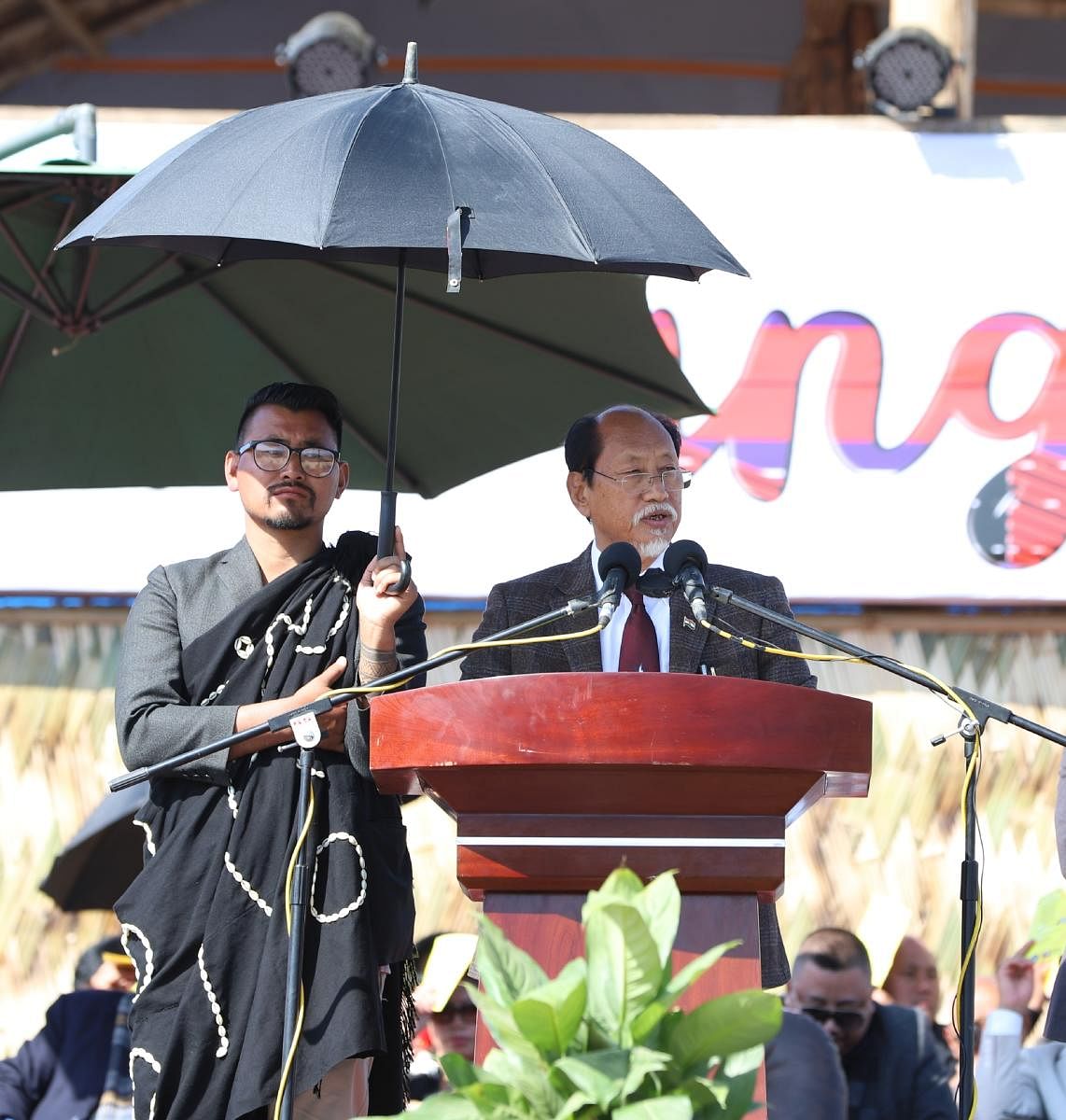
A worried Nagaland government is now mulling a law to withdraw the tribal status accorded to Naga women who marry non-Nagas.
The state government seems to be worried over the impact of the Citizenship (Amendment) Bill, 2016, passed by the Lok Sabha recently.
“The chief minister talked about public opinion for having a law which will forfeit Naga women of their tribal status if they marry non-Nagas. But the government needs to have a thorough discussion in the Assembly before taking a decision,” said an official statement, quoting Rio, issued at a function in Tuensang district on Saturday.
Inner Line Permit
“The state government is studying the ground realities and the effectiveness of Inner Line Permit (ILP) in the state, particularly in the foothills of Dimapur,” it said.
As per the Bengal Eastern Frontier Regulation (BEFR), 1873, a non-Naga visiting the state requires an ILP, with a validity ranging between one week and six months.
But the same is not applicable in Dimapur, the commercial capital. This has given rise to fears that “illegal migrants” could settle in Nagaland by marrying Naga women.
“The Cabinet recently resolved to propose adoption of a resolution reaffirming all provisions of Article 371 (A) and to strengthen the implementation of ILP in the next Assembly session. We had also resolved to discuss with all political parties as well as with all stakeholders,” it said.
This comes days after the Nagaland Cabinet adopted a resolution to urge the Centre to review the Citizenship (Amendment) Bill, 2016.
Rio leads the Nationalist Democratic Progressive Party (NDPP), a regional party having an alliance with the BJP in the state.
The Asom Gana Parishad, the BJP’s ally in Assam, pulled out of the coalition government recently and those in the rest of the Northeast are also against the bill.
Protest over bill
The Northeast had erupted in protests ever since the Centre introduced the bill in Parliament which seeks to offer citizenship to “persecuted” non-Muslim migrants from Pakistan, Bangladesh and Afghanistan, after a stay of six years.